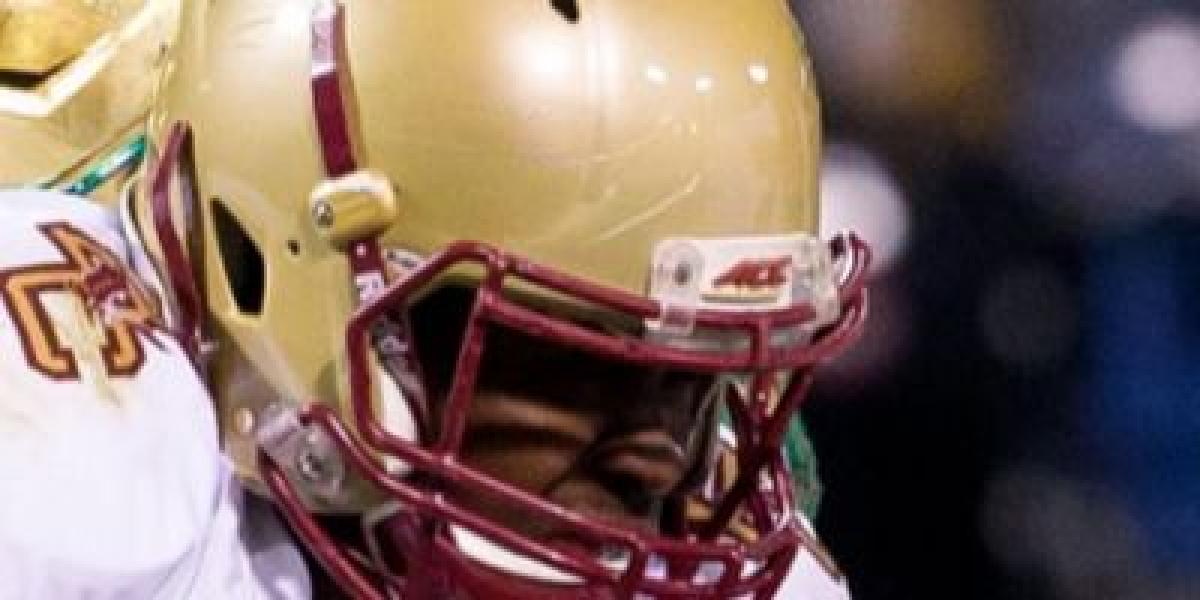For most of the program's history, the Eagles have sported a variation of this basic design. From the early days in the late 19th century to the mid-20th century, Boston College helmets lacked any adornment beyond a simple gold shell. This minimalism mirrored the team's uniforms, which emphasized clean lines and a timeless elegance. Early photographs suggest some helmets may have featured uniform numbers on the sides, but color documentation for these details is scarce.
A key element, the maroon stripe, arrived sometime in the late 1950s or early 1960s. The exact reasoning behind its introduction remains unclear, but it's widely believed to be a nod to the university's maroon and gold colors. This addition offered a subtle yet effective way to break up the monotony of the gold shell while maintaining the overall clean aesthetic.
There have been a few notable exceptions to this minimalist design. In 1964, unconfirmed reports suggest some players wore helmets with a "flying eagle" decal, possibly as an award or recognition. However, this was never adopted as a widespread design element.
A more significant deviation came in 2011 and 2012, when Boston College donned helmets featuring a special "American flag" themed stripe to honor the 10th anniversary of 9/11. This temporary design was a poignant tribute, but the traditional maroon stripe quickly returned.
In recent years, a slight variation has emerged. The maroon stripe has undergone minor modifications, with some iterations featuring a slightly thicker "shadow" effect. However, the core design – a metallic gold shell with a single maroon stripe – remains steadfast.
The Boston College helmet design, devoid of flashy graphics or mascots, stands as a testament to the program's commitment to tradition. It's a symbol of a team that prioritizes focus and discipline, letting its performance on the field do the talking. The gold and maroon shine not just on the helmets, but in the enduring spirit of the Boston College Eagles.
There is so much more to explore, so check out our other stories of Boston College football history.




